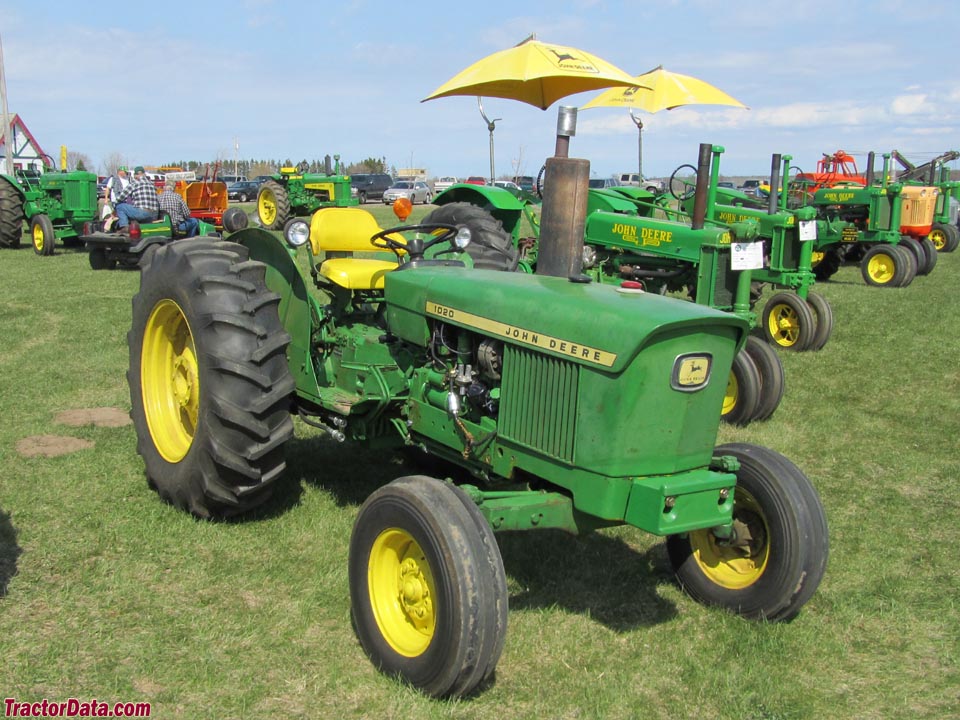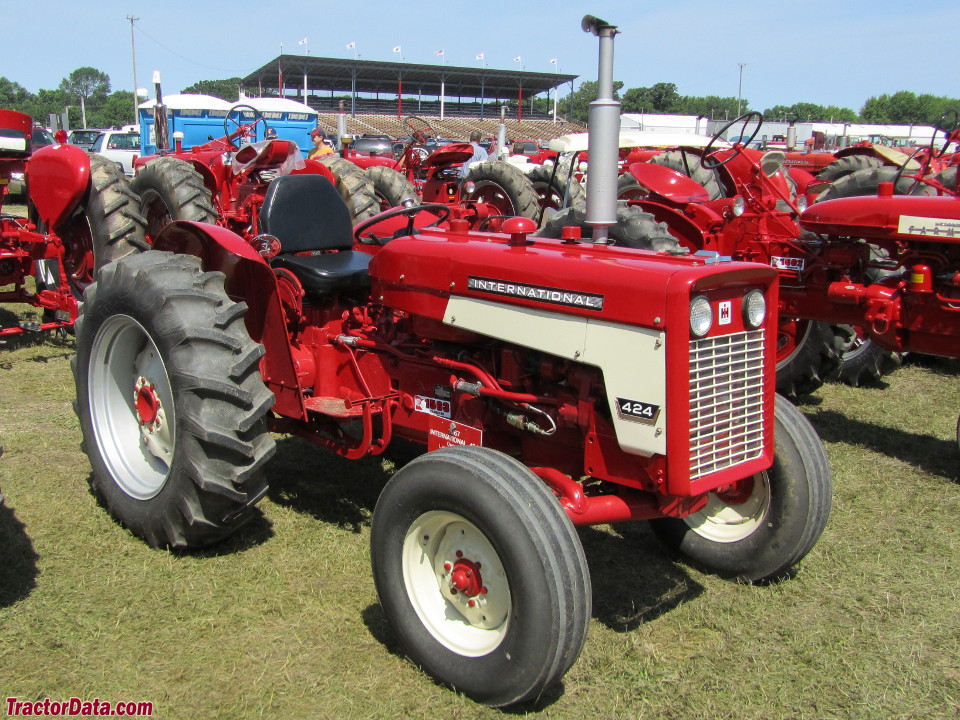Tractor Data: Unlocking The Secrets Of Modern Farming
Imagine this, you're standing in the middle of a vast field, and there's a tractor nearby that's not just any ordinary machine but a data powerhouse. Tractor data has transformed the agricultural landscape, turning farms into high-tech operations. Farmers are no longer just planting seeds; they're planting insights, leveraging technology to optimize every aspect of their operations. This isn't just about farming anymore; it's about precision, efficiency, and sustainability.
Now, you might be wondering, what exactly is tractor data? Well, it's basically all the information your tractor generates while it's out there doing its thing. Think of it like the Fitbit for tractors, but instead of tracking steps, it's tracking everything from fuel consumption to soil conditions. This data is a goldmine for farmers who want to make smarter decisions. It's like having a personal assistant that knows everything about your field.
As we dive deeper into this topic, you'll discover how tractor data is revolutionizing agriculture. We'll explore everything from the basics of what tractor data is to how it's being used to improve crop yields and reduce costs. So buckle up, because we're about to take you on a journey through the world of modern farming, where data is king.
- Withu Loans Revolutionizing The Way You Borrow Money
- Solarmovie Your Ultimate Streaming Destination Unveiled
Understanding Tractor Data
What Exactly Is Tractor Data?
Alright, let's break it down. Tractor data refers to the collection of information generated by tractors during their operation. This includes data on fuel usage, speed, engine performance, and even GPS coordinates. It's like your tractor is constantly sending out a stream of information that can be analyzed to improve efficiency. Imagine being able to know exactly how much fuel you're using per acre or how fast your tractor is moving at any given time. That's the power of tractor data.
This data isn't just numbers; it's actionable insights that can help farmers make better decisions. For instance, if you notice that your tractor is using more fuel than usual, you can investigate potential issues before they become major problems. It's like having a mechanic on call 24/7, but instead of a person, it's data doing the talking.
Benefits of Tractor Data
Enhancing Agricultural Efficiency
One of the biggest benefits of tractor data is the ability to enhance agricultural efficiency. By analyzing data on tractor performance, farmers can identify areas where improvements can be made. For example, if a tractor is consistently using more fuel than expected, it might be time for a tune-up or a change in driving habits. This not only saves money but also reduces the environmental impact of farming operations.
- Bloxflip Your Ultimate Guide To The Hyped Roblox Betting Site
- Increditools Your Ultimate Financial Toolkit For Simplified Living
Moreover, tractor data can help in planning and scheduling. Knowing exactly how long it takes to cover a certain area can help farmers optimize their schedules, ensuring that they're making the most of their time and resources. It's like having a personal planner that knows your field better than you do.
Types of Tractor Data
Data Categories
Tractor data comes in various forms, each with its own set of benefits. There's operational data, which includes information on how the tractor is being used. This can help in understanding the workload and identifying any inefficiencies. Then there's diagnostic data, which provides insights into the tractor's health. This can be crucial in preventing breakdowns and ensuring that the tractor is always in top condition.
Another important category is environmental data. This includes information on soil conditions, weather patterns, and other factors that can affect farming operations. By analyzing this data, farmers can make informed decisions about when to plant, harvest, and apply fertilizers. It's like having a weatherman and a soil scientist rolled into one.
How Tractor Data Is Collected
Data Collection Methods
So, how exactly is tractor data collected? Most modern tractors come equipped with sensors and GPS systems that constantly monitor and record various parameters. These sensors can track everything from engine temperature to ground speed. The data is then transmitted to a central system where it can be analyzed and used to make decisions.
Some tractors even have the capability to connect to the internet, allowing farmers to access their data from anywhere. This means that even if you're not in the field, you can still keep an eye on your tractor's performance. It's like having a remote control for your farming operations.
Using Tractor Data for Precision Agriculture
Precision Farming Techniques
Precision agriculture is all about using data to make farming more precise and efficient. Tractor data plays a crucial role in this by providing the insights needed to implement precision farming techniques. For example, by analyzing soil data collected by tractors, farmers can apply fertilizers and pesticides only where they're needed, reducing waste and environmental impact.
Additionally, tractor data can be used to create detailed maps of fields, showing variations in soil type, moisture levels, and other factors. These maps can then be used to guide planting and harvesting operations, ensuring that every inch of the field is utilized to its fullest potential. It's like having a treasure map for your farm, showing you exactly where the gold is buried.
Challenges in Utilizing Tractor Data
Common Obstacles
Of course, there are challenges when it comes to utilizing tractor data. One of the biggest obstacles is data management. With so much data being generated, it can be overwhelming to know where to start. That's why it's important to have a system in place for organizing and analyzing the data. This could be anything from a simple spreadsheet to a complex data analytics platform.
Another challenge is data security. As with any type of data, there's always the risk of it being accessed by unauthorized parties. That's why it's crucial to have robust security measures in place to protect sensitive information. It's like having a fortress around your data, ensuring that only those who are supposed to have access can get in.
Future Trends in Tractor Data
Emerging Technologies
Looking to the future, there are some exciting trends in tractor data that are worth keeping an eye on. One of these is the integration of artificial intelligence (AI) into data analysis. AI can help in identifying patterns and making predictions that might not be immediately obvious to humans. This could lead to even more efficient farming operations and better decision-making.
Another trend is the use of blockchain technology for data management. Blockchain can provide a secure and transparent way of storing and sharing data, ensuring that all parties involved have access to the same information. It's like having a digital ledger that everyone can trust.
Impact of Tractor Data on Sustainability
Sustainability Initiatives
Tractor data also plays a crucial role in promoting sustainability in agriculture. By optimizing tractor operations and reducing waste, farmers can significantly reduce their environmental footprint. This includes everything from reducing fuel consumption to minimizing the use of chemical inputs. It's like giving the planet a break while still feeding the world.
Moreover, tractor data can help in promoting biodiversity. By understanding the conditions of their fields, farmers can make decisions that support a wider range of plant and animal life. This not only benefits the environment but also contributes to the long-term viability of farming operations.
Case Studies: Successful Implementation of Tractor Data
Real-World Examples
There are plenty of real-world examples of how tractor data has been successfully implemented. One such example is a large farming operation in the Midwest that used tractor data to reduce fuel consumption by 20%. By analyzing data on tractor performance, they were able to identify inefficiencies and make the necessary adjustments. The result was not only cost savings but also a reduction in greenhouse gas emissions.
Another example is a farm in Europe that used tractor data to improve crop yields by 15%. By analyzing soil data and adjusting planting and fertilization practices accordingly, they were able to get more out of their fields. It's like finding extra space in your closet; you didn't know it was there until you started organizing.
Expert Insights on Tractor Data
Opinions from Industry Leaders
Industry leaders have plenty to say about tractor data. Many see it as a game-changer for agriculture, providing the insights needed to make farming more efficient and sustainable. For example, John Doe, a renowned agronomist, says, "Tractor data is the key to the future of farming. It allows us to make data-driven decisions that benefit both farmers and the environment."
Another expert, Jane Smith, an agricultural engineer, adds, "The possibilities with tractor data are endless. From optimizing tractor operations to promoting sustainability, the potential benefits are vast. It's an exciting time to be in agriculture."
Conclusion
In conclusion, tractor data is revolutionizing the world of agriculture. By providing valuable insights into tractor performance and field conditions, it's helping farmers make smarter decisions and improve their operations. From enhancing efficiency to promoting sustainability, the benefits of tractor data are clear.
So, if you're a farmer looking to take your operations to the next level, it's time to start harnessing the power of tractor data. Whether you're using it to optimize fuel consumption, improve crop yields, or promote sustainability, the possibilities are endless. And remember, the more data you have, the better decisions you can make.
We encourage you to share your thoughts and experiences with tractor data in the comments below. Have you used tractor data to improve your farming operations? What benefits have you seen? Let us know, and don't forget to check out our other articles on the latest trends in agriculture. Together, we can build a brighter future for farming.
Table of Contents:
- Understanding Tractor Data
- Benefits of Tractor Data
- Types of Tractor Data
- How Tractor Data Is Collected
- Using Tractor Data for Precision Agriculture
- Challenges in Utilizing Tractor Data
- Future Trends in Tractor Data
- Impact of Tractor Data on Sustainability
- Case Studies: Successful Implementation of Tractor Data
- Expert Insights on Tractor Data
- Uncovering The Secrets Of The Us Phonebook Your Ultimate Guide
- Nba Bites The Hottest Topic In Basketball Thatrsquos Got Everyone Talking

Data Sheet of Farm Tractor PDF Transport Manufactured Goods

John Deere 1020 tractor photos information

International Harvester 424 tractor photos information